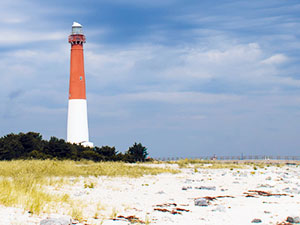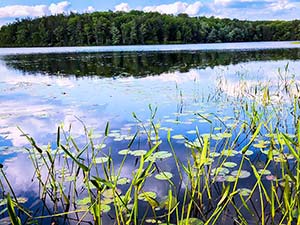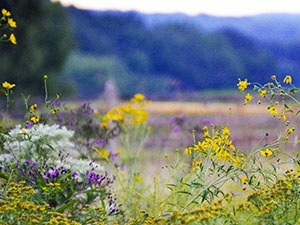Global and Local Field Sites
Internationally, faculty and scientists in the department conduct transdisciplinary research programs at Bioko Island, Costa Rica, Ecuador, Israel, Mongolia, Peru, Taiwan and many other biodiverse sites around the globe. Study and research abroad help expand students' horizons and offer valuable hands-on experience across disciplines. Long-term options, such as International Co-op, may offer up to six months of work experience. Short-term options, such as Intensive Courses Abroad, offer international academic experiences that run about 7-10 days during term breaks.
Global Opportunities
Locally, the Barnegat Bay Field Station in New Jersey is an undeveloped space for biological surveys and estuary studies of diverse coastal habitats, from maritime forests and tidal creeks to upland pine-oak forests and a sandy beach. The forested Lacawac Sanctuary in the Pocono Mountains of Pennsylvania is an ecological field research station and public environmental education facility. Situated in Newtown Square, Pennsylvania, the Willistown Conservation Trust’s Rushton Woods Preserve combines five core research programs in land protection, habitat restoration, sustainable agriculture, bird conservation and watershed.

Barnegat Bay Field Station
Take a step back in time to the longest stretch of Barnegat Bay shoreline that remains undeveloped. The Lighthouse Center at the Barnegat Bay Field Station in Waretown, NJ, is situated on 194 acres of rich coastal habitats: a maritime forest, tidal creek, salt marsh, freshwater pond, brackish impoundment, and bayshore environments. Gain hands-on field research in coastal geology, barrier island morphology, oceanography and sedimentology. In addition, the facility can serve as a base for excursions into the Pine Barrens, a heavily forested area containing many interesting deposits related to the last glacial period. The department hosts its Pre-Term Field Experience for first-year undergraduates, as well as other events, at Barnegat Bay Field Station. Owned by NJDEP, Division of Fish and Wildlife, the field station is managed by the Natural Resource Education Foundation of New Jersey.

Lacawac Sanctuary
Nestled on a 550-acre tract near the shores of Lake Wallenpaupack in the Northern Poconos, Lacawac Sanctuary combines an environmental education center, nature center and biological field station. Lacawac works with a consortium of colleges and universities to build research partnerships and offer a pristine location for undergraduate and graduate research. The Sanctuary is home to the pristine Lake Lacawac—a 52-acre National Natural Landmark and one of the southernmost glacial lakes in the hemisphere—the Sanctuary boasts more than 45 years of aquatic research and data compilation since its foundation in 1966. In addition, the Sanctuary encompasses multiple bodies of water for comparative studies: the Wallenpaupack Ledges and Partner Ridge, six public hiking trails, deer enclosure plots, a native plants demonstration garden and a natural boreal bog.

Rushton Woods Preserve
The Willistown Conservation Trust’s Rushton Woods Preserve is an 86-acre treasure of mature woodland, open meadows, a creek, and Rushton Farm. The preserve is the center of the Trust’s Community Farm and Bird Conservation Program. Opened in 2018, the Rushton Conservation Center is on the edge of the permanently protected Rushton Woods Preserve. With Rushton Farm as its neighbor, this community building is submerged in nature, overlooking a colorful rain garden, abundant meadows full of pollinators and bird species, and rows of fresh crops grown for our sustainable agriculture program. Rushton Woods unites the Trust’s five core programs in land protection, habitat restoration, sustainable agriculture, bird conservation, and watershed.